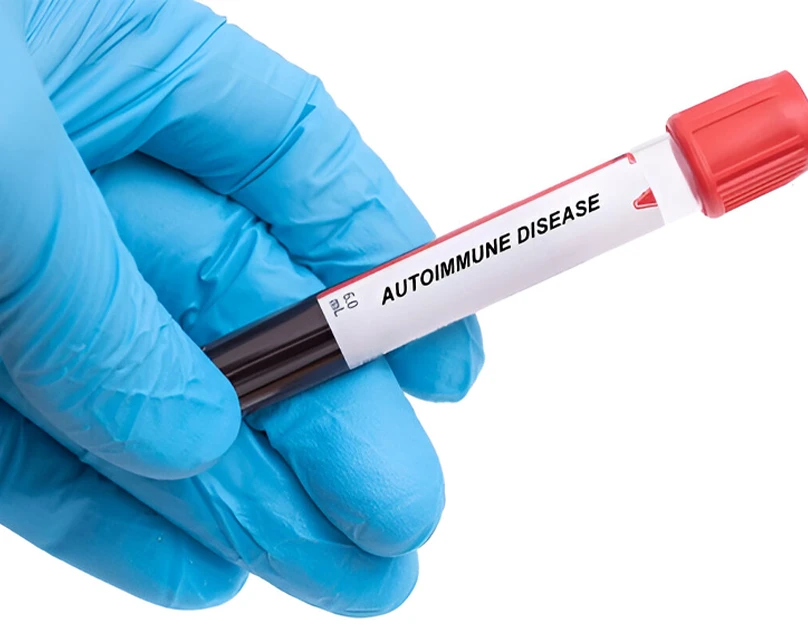

Can Autoimmune Disease be Cured: When the Body Attacks Itself
Autoimmune condition, is defined as the immune system losing its ability to distinguish between “self” and “non-self.” This condition can instead help in targeting foreign invaders, the issue also identifies parts of the body as dangerous and launches an attack.
Such issue can lead to inflammation, tissue damage, and a wide range of debilitating symptoms, which shall vary greatly depending on which part of the body is just under assault. Learning solution to, Can Autoimmune Disease be Cured is a challenging thing to know and follow.
There are over 80 known autoimmune conditions, they can all affect millions worldwide, with common examples mentioned below:
- Rheumatoid Arthritis (RA): The immune system simply attacks those joints, causing pain, swelling, stiffness, and potentially joint damage.
- Lupus (Systemic Lupus Erythematosus – SLE): This is a chronic inflammatory condition that can affect numerous organs like the joints, skin, kidneys, blood cells, brain, heart, and lungs.
- Type 1 Diabetes: It leads to the detriment of the insulin-producing cells in the pancreas. The condition further leads to high blood sugar levels.
- Hashimoto’s Thyroiditis: It is attacked by the thyroid gland, which shall lead to the underactive thyroid.
- Psoriasis: A condition where in the skin cells shall all build up and form scales and itchy, dry patches, which can lead to an overactive immune system.
Such mentioned issues are well chronic, which means they are super long-lasting and might need lifelong management. While the concept of a “cure” in the traditional sense shall mean complete eradication of the disease. This can further remain elusive for most of the autoimmune diseases, significant progress has been made in controlling symptoms and enhancing patient outcomes.
Can Autoimmune Disease Be Cured? The Reality of Management and Remission
The question of whether these autoimmune diseases can be “cured” is complex. For most of the autoimmune conditions. The answer, is no, not a complete cure but can help in knowing how can autoimmune disease be cured. The underlying immune system dysfunction like condition shall persists. However, this does not mean there is no hope or that patients are simply left without options. Far from it!
Instead of a cure, it can be further focused on autoimmune disease management. This can be achieving remission and controlling the condition’s progression. Remission means that some of the symptoms are well significantly while lowering or even this shall disappear for a period. This further can be about achieving through various treatment strategies which shall aim on many things mentioned below:
- Reduce Inflammation: Medications including corticosteroids and non-steroidal anti-inflammatory drugs (NSAIDs), which can help in calmind the immune response and alleviate pain and swelling like conditions too.
- Suppress the Immune System: Immunosuppressant drugs might all lower the overall activity of the immune system. Some of them can have side effects due to broad immune suppression, while making targeted therapies highly desirable.
- Target Specific Pathways: Biologic drugs and some of the small molecule inhibitors are a breakthrough in autoimmune treatment. Such therapies might be targeted in certain immune cells, proteins, or signalling pathways which are all involved in the autoimmune response. This condition shall all lead to more precise and often more effective treatment with fewer side effects than broad immunosuppressants.
- Manage Symptoms: Beyond condition for addressing the immune system, there are various treatments which shall also focus on alleviating specific symptoms. They might include pain management, fatigue reduction, and support for affected organs.
- Lifestyle Modifications: Condition like diet, exercise, stress management, and other lifestyle alterations can play a crucial role in managing symptoms and supporting overall well-being.
While a knowing “can autoimmune disease be cured” there are may not be on the immediate horizon for many. The landscape of an autoimmune disease solution is constantly evolving. There are various researchers that are continually discovering new insights into the intricate mechanisms of such condition.
The goal is to move towards those personalized medicine, where the treatments might be tailored to an individual’s unique genetic and molecular profile. This shall be offering the best possible chance of long-term remission like condition and a high quality of life.
The Genetic Link: Why Some Might Develop Autoimmune Diseases
Autoimmune conditions are not typically inherited in a simple, straightforward pattern just like some other genetic conditions (including cystic fibrosis). This might be about considering complex diseases, which means they might arise from a combination of factors:
- Genetic Predisposition: The genes play a significant role in determining susceptibility to autoimmune conditions. While there is no usual single “autoimmune gene,” which might be the genes, each with a small effect. It can collectively enchain the risk too. Some of the most significant genetic factors are known to be linked to several autoimmune diseases. HLA is one that type of genes which are needed for immune system function. They shall help the body to distinguish between its own proteins and foreign invaders.
- Environmental Triggers: Even with other genetic predisposition, an autoimmune condition might all need an environmental trigger to manifest. Such level of trigger can include the below:
- Infections: Viral or bacterial infections can at times “fool” the immune system into attacking the body’s own tissues (which is molecular mimicry).
- Toxins: Exposure to certain chemicals or some of the environmental pollutants.
- Stress: Chronic stress like condition can further influence immune function.
- Diet: Certain dietary factors might further contribute to inflammation and immune dysregulation.
- Hormonal Factors: Other autoimmune diseases shall affect women more frequently than men, which can suggest a role for hormonal influences.
- Epigenetics: Some of the fascinating field studies might be about how environmental factors can “turn genes on or off” without further changing the underlying DNA sequence. Epigenetic alteration can further influence gene expression and contribute to the development of autoimmune diseases in other susceptible individuals.
The interplay which might be about such factors is about making autoimmune diseases so complex and challenging to fully understand and treat. However, some of the complexity might be about highlighting the immense potential of genetic testing in knowing how can autoimmune disease be cured and these mysteries. They can offer precise approach to diagnosis, risk assessment, and personalized treatment.
Genetic Testing: A Powerful Tool in the Autoimmune Journey
As a genetic testing provider, LifeCode does understand the immense power that insights from your DNA can further offer. For other autoimmune diseases, genetic testing is not about giving a simple “yes” or “no”, but this shall rather provide crucial information which can empower individuals and the healthcare providers.
How Genetic Testing Can Help:
- Risk Assessment and Early Identification:
- Identifying Predisposition: Genetic testing like help can identify specific genetic markers.
- Early Detection: For some of the individuals with a family history of autoimmune condition, knowing other genetic predisposition can be a prompt earlier monitoring and lifestyle interventions.
- Pre-symptomatic Insights: Genetic testing like help can all identify individuals who are in a “pre-clinical” stage. This can also mean that they have genetic markers.
- Accurate Diagnosis:
- Differentiating Conditions: Autoimmune condition might usually be present with overlapping and non-specific symptoms. This can make diagnosis and knowing can autoimmune disease be cured challenging.
- Identifying Monogenic Autoimmune Diseases: While some of the most autoimmune conditions are complex and polygenic. It is a rare subset is caused by a single gene defect (monogenic autoimmune diseases).
- Personalized Treatment Strategies (Pharmacogenetics):
- Guiding Medication Choices: Genetic testing like help shall particularly be in the field of pharmacogenetics. This can all provide insights into how an individual’s body shall metabolize and respond to certain medications.
- Optimizing Dosage: Genetic information can help those healthcare providers to determine the most effective dosage of a medication, minimizing side effects on maximizing therapeutic benefit.
- Avoiding Ineffective Treatments: By understanding an individual’s genetic profile, doctors can further avoid prescribing medications which are less likely to be effective for them. It includes help such as saving time, lowering frustration, and preventing unnecessary side effects.
- Family Planning and Genetic Counselling:
- Informing Reproductive Decisions: For several individuals with a strong family history of autoimmune disease, genetic testing can further provide information about all those risks of passing on some predispositions to the children.
- Genetic Counselling: Genetic counsellors is known to play a vital role in interpreting complex genetic test outcomes. This can explain implications and might also help in providing guidance on family planning and risk management.
Advanced Genetic Testing for Autoimmune Disease: Peering Deeper into the Genome
The field of genetic testing by LifeCode has undergone a dramatic transformation in recent years. However, moving beyond single-gene analyses to comprehensive genomic insights. Some of the advanced technologies are particularly valuable for understanding such intricate genetics of autoimmune diseases.
Advanced Genetic Testing for Autoimmune Disease:
- Next-Generation Sequencing (NGS):
- Revolutionizing Genetic Analysis: NGS, which are known as a massively parallel sequencing, have all revolutionized genetic testing. This is done by enabling the rapid and cost-effective sequencing of millions or even billions of DNA fragments which occurs simultaneously.
- Comprehensive Analysis: Unlike some of the older methods which shall analyse one gene at a time, NGS can further examine numerous genes simultaneously. It shall allow:
- Panel Testing: It is all focused as NGS panels which can target a specific set of genes which is known to be associated with various autoimmune conditions. This can provide a comprehensive look at relevant genetic markers knowing how can autoimmune disease be cured.
- Whole Exome Sequencing (WES): While some of the exons shall also make up only about 1 to 2% of the entire genome, they might further contain approx. 85% of known disease-causing mutations.
- Whole Genome Sequencing (WGS): WGS like is known as the most comprehensive genetic test. This shall be about sequencing the entire human genome, like both coding (exons) and non-coding regions (introns and intergenic regions).
- Single Nucleotide Polymorphism (SNP) Arrays / Genome-Wide Association Studies (GWAS):
- GWAS uses SNP arrays with reference to scan the entire genome for common genetic variations (SNPs). This can more frequently be found in people with a particular disease compared to healthy individuals.
- Population-Level Insights: While not typically using for individual diagnostic purposes in the same way as WES or WGS. This might be about GWAS on finding crucial insights into the genetic architecture of autoimmune diseases.
While a definitive “cure” for most of the autoimmune diseases remains a long-term goal, the advancements in genetic testing are fundamentally reshaping the approach to these conditions. Such future of autoimmune disease management on knowing how can autoimmune disease be cured is undeniably heading towards precision medicine, where interventions are highly individualized. This is all based on a person’s unique genetic makeup, lifestyle, and environmental exposures.
As a genetic testing provider, LifeCode are at the forefront of this revolution, empowering individuals with the knowledge that is needed to understand their genetic predisposition. This shall all work with healthcare providers for navigating the complexities of autoimmune diseases. On the journey to a “cure” is simply ongoing, the path to a healthier, more controlled life with an autoimmune condition shall be about clearer and more personalized than ever before, thanks to the remarkable insights which is offered by genetic science.

Can You Inherit Migraine Risk The Truth About Women’s Brain Health
Can You Inherit Migraine Risk The Truth About Women’s Brain Health The Genetic Link to Migraines, It Is More Than Just Bad Luck Why Women are More...


Unlocking Your Body’s Blueprint: Genetic Clues to Pregnancy Complications and Hypertension
Unlocking Your Body's Blueprint: Genetic Clues to Pregnancy Complications and Hypertension The Intricate Dance of Genes and Health Decoding Pregnancy Complications Through Genetics The Genetic Roots of...

Education: Bachelor of Pharmacy (B.Pharm) from the Tata Institute of Social Sciences (TISS), Mumbai Experience: Agarwal is a seasoned pharmacist with over 7 years of experience in the pharmaceutical field. She has worked in various settings, including hospital pharmacies and community clinics, where she has excelled in medication management, patient counseling, and clinical support. Agarwal is known for her expertise in drug therapy optimization and patient safety. In addition to her practical experience, she contributes to health journalism, focusing on pharmaceutical advancements and health policy, and is involved in research projects aimed at improving medication practices and health outcomes. is known for her expertise in drug therapy optimization and patient safety. In addition to her practical experience, she contributes to health journalism, focusing on pharmaceutical advancements and health policy, and is involved in research projects aimed at improving medication practices and health outcomes.


